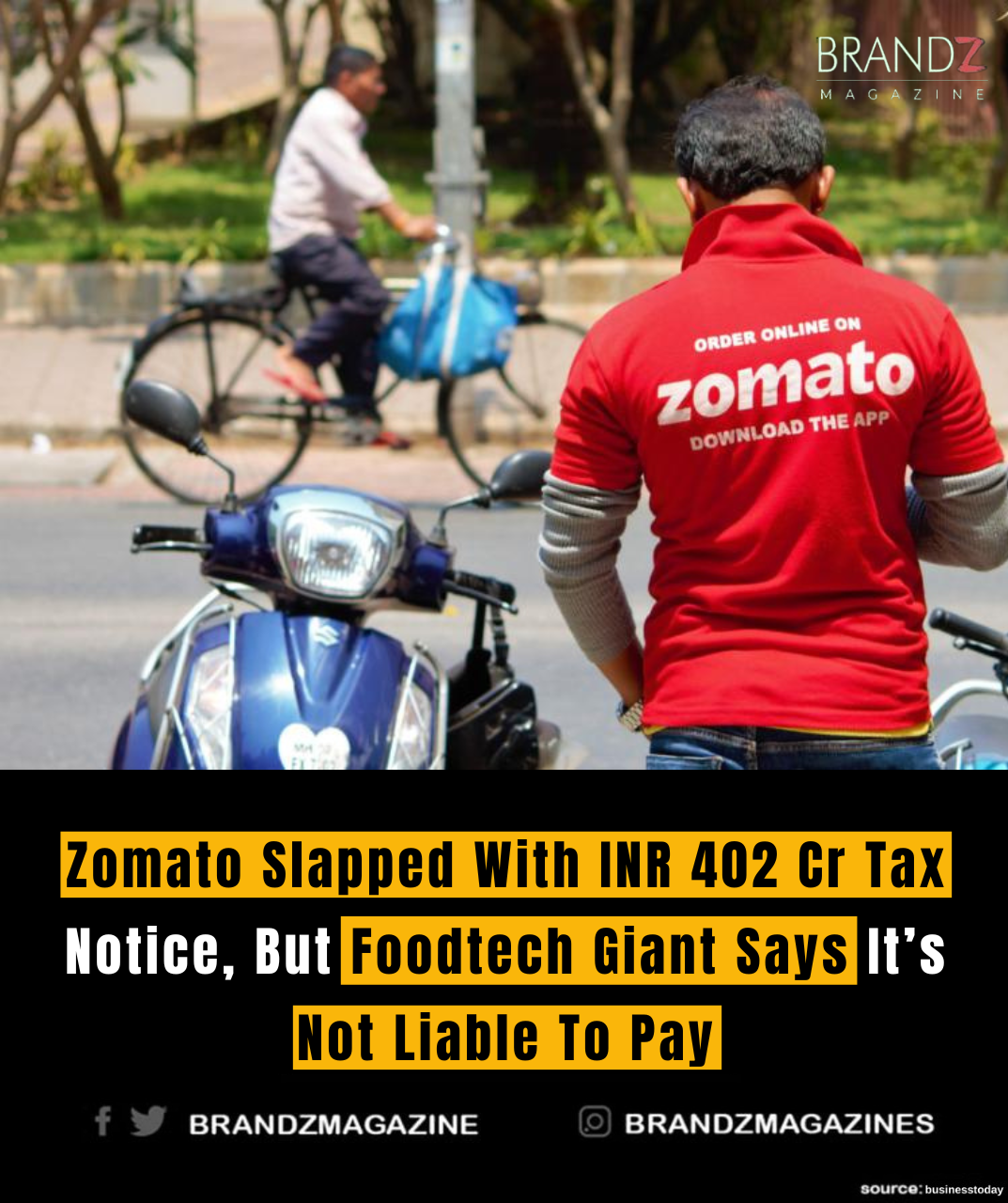
In a recent development, Zomato, the leading food delivery and technology giant, finds itself in the midst of a tax dispute as it has been served with a notice demanding payment of INR 402 crores. However, the company asserts that it is not liable to pay the sum, setting the stage for a potential legal battle between the foodtech giant and tax authorities.
Table of Contents
ToggleThe tax notice, amounting to INR 402 crores, has been issued by tax authorities citing alleged lapses in compliance and accounting practices. The notice covers a specified period and raises concerns over certain financial transactions and tax liabilities during that timeframe.
In response to the tax notice, Zomato has categorically denied liability for the specified amount. The company argues that its financial transactions and accounting practices are in compliance with the applicable laws and regulations. Zomato contends that the notice is based on a misinterpretation of its financial records and that it has adhered to all statutory obligations.
The intricacies of tax compliance for technology-driven businesses, especially those operating in the dynamic landscape of the digital economy, often present challenges. The evolving nature of technology and business models can create complexities that tax authorities and businesses navigate to ensure accurate and fair taxation.
Zomato’s stand on the matter suggests a commitment to resolve the dispute through legal means if necessary. The company asserts its confidence in the legality and legitimacy of its financial practices and is prepared to present its case to relevant authorities or in a legal setting.
This tax dispute with Zomato raises broader questions about the taxation challenges faced by tech-driven companies. As the digital economy continues to grow, tax authorities globally are grappling with establishing frameworks that effectively capture the revenue generated by these entities. Zomato’s case could potentially set a precedent for how such disputes are handled within the foodtech and broader technology sectors.
In light of the dispute, there remains the possibility of a collaborative resolution between Zomato and tax authorities. Open lines of communication and a willingness to engage in dialogue could pave the way for an amicable resolution that addresses concerns while ensuring a fair and just outcome.
While the tax dispute unfolds, Zomato has reassured its users, restaurant partners, and stakeholders that its day-to-day operations will continue without disruption. The company remains focused on its mission to connect consumers with a diverse range of culinary experiences, irrespective of the ongoing legal complexities.
The tax notice and subsequent dispute underscore the challenges faced by large tech-driven companies in navigating the intricate tax landscape. As Zomato and tax authorities engage in a dialogue or potential legal proceedings, the outcome will be closely watched by industry observers, businesses, and regulatory bodies alike. The resolution of such cases often contributes to the ongoing dialogue on tax reforms in the digital age, influencing how taxation is approached for technology companies in the future.

